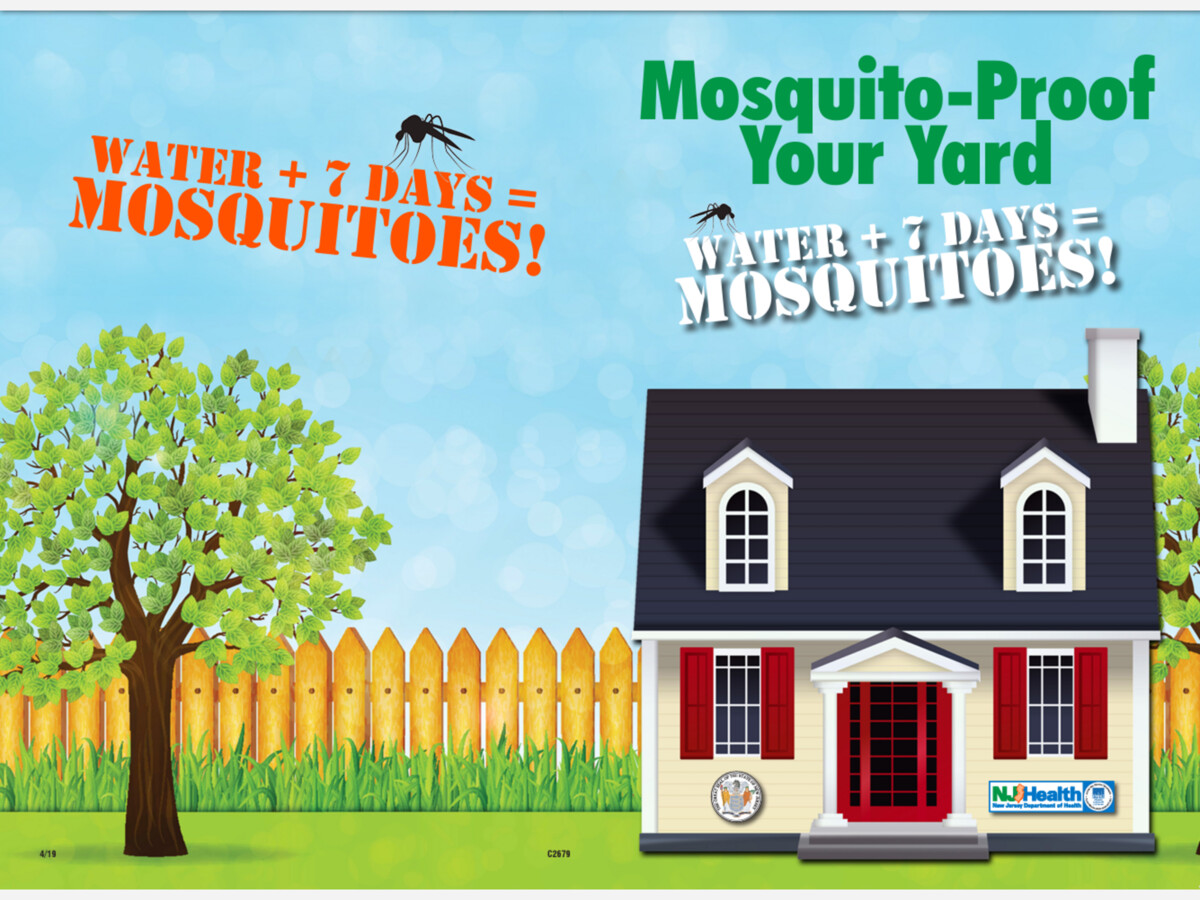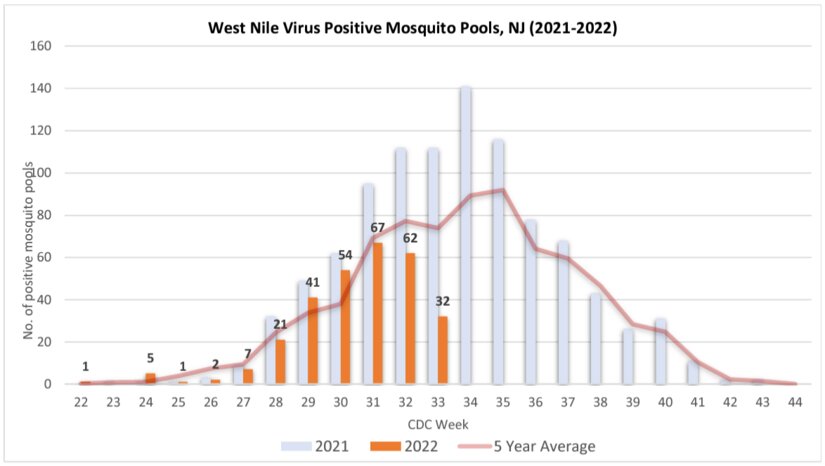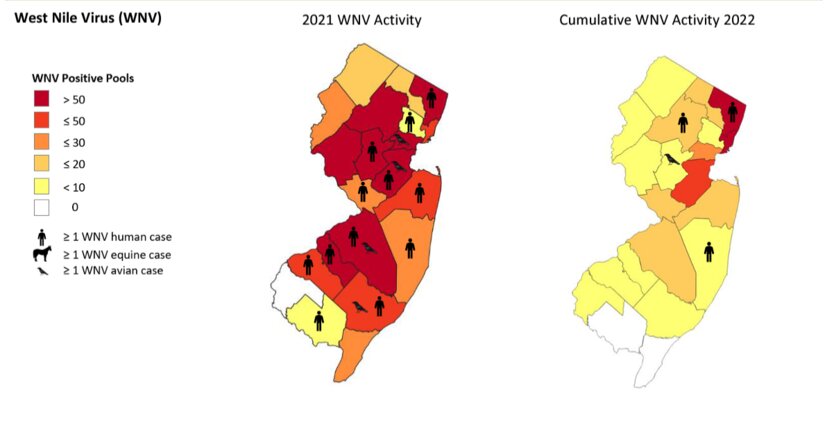Image

The New Jersey Department of Health has confirmed the state’s first human cases of West Nile Virus (WNV) this year.
Three NJ men tested positive earlier this month for West Nile Virus (WNV) in Bergen, Morris, and Ocean Counties. Two are in their 50s, one is in his 80s, and all three were hospitalized. Two of the individuals are now recovering at home and one remains hospitalized.
WNV has also been detected in 293 mosquito pools and a red-tailed hawk this year in New Jersey. No cases of WNV have been reported in horses in 2022.
In a typical year, there are eight human WNV infections reported in the state. However, last year, New Jersey had 36 human cases of WNV. While WNV infections are elevated in mosquitos this year with a near record number of cases, these new infections are not far outside the five-year average trends.

For most, the virus causes asymptomatic infection or a mild to moderate illness, typically a fever. People over 50 years of age and people with weak immune systems are at a greater risk of developing severe illness.
About one in 150 persons will develop a more severe form of the disease, with symptoms such as severe headaches, high fever, stiff neck, stupor, disorientation, coma, tremors, convulsions, muscle weakness, and paralysis.
Early symptoms of West Nile Virus may be confused with symptoms of the Coronavirus or several other common viral illnesses. Specific laboratory tests are needed to confirm WNV, but there is no specific treatment for the virus. The best way to prevent the disease is to avoid mosquito bites.
In addition to potentially harming humans, WNV can harm animals as well. WNV affects a horse’s neurological system, which is why preventative care for these animals is encouraged.

You can help reduce the mosquito population by emptying or changing outdoor standing water at least weekly to stop mosquito breeding. Check flowerpots, pet food and water dishes, birdbaths, swimming pool covers, clogged gutters, plastic wadding pools, and wheelbarrows, to name a few.
Contact with mosquitos can be reduced further by using air-conditioning when possible and ensuring window screens are closed and in good repair.
Find some helpful tips to mosquito-proof your property here.
If you’re having a mosquito problem on your property, report it to your County Mosquito Control Agency.
Morris County’s Mosquito Control Agency:
West Nile Virus is an arboviral disease that people can acquire through bites from a mosquito that has fed on an infected bird. WNV is not directly transmitted from birds to humans.
Weekly reports on WNV-related activities can be found on the NJ Department of Health website.
Follow Morristown Minute on Facebook, Instagram, and Twitter for more state and local updates.